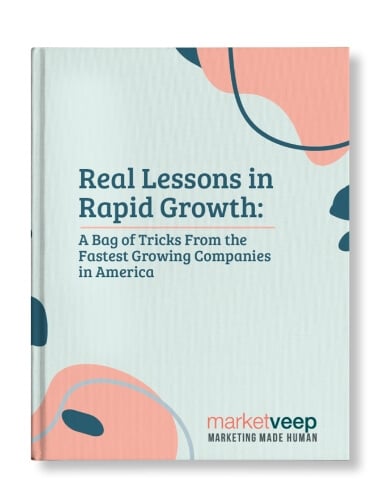Is My Startup Ready for VC Investment?

 When you purchase through links on our site, we may earn an affiliate commission.
When you purchase through links on our site, we may earn an affiliate commission.
By Bill Viau
“Startup” has come to be used as a catch-all term, but it actually represents companies from a wide range of growth stages. Each stage has the potential to benefit from VC startup funding, albeit in different ways. Whether or not you’re ready for a VC investment is closely tied to three things: your business model, your business plan, and your needs in an investor.
Your startup was built around a golden idea and a lot of hard work from the founding team. At a certain point, you’re sure to reach a point where you could scale the operation into a successful business—if only you had the resources.
But how can you tell when the time has finally come to expand? Should you seek a VC investment for this stage of growth? And how can you know if a VC investment is the right move for your company in the first place?



These questions are complicated by the fact that there are many (slightly blurry) stages of VC startup funding. Since the purpose of a VC investment corresponds directly to your tier of growth, the first step is to identify where you are on this continuum and—therefore—how you would use the investment:
- Pre-Seed: The earliest funding to get from an idea to a prototype or proof-of-concept.
- Seed: Initial resources to grow a limited operation around an early-stage product into a company with a product that can reach the market.
- Series A (Early, “First-Round”): Startup money to give a small company with evidence of market traction the juice to go commercial.
- Series B (Expansion): Scaling money to dramatically ramp growth of a proven business model, acquire smaller startups, or expand into new market segments.
- Series C+ (Late): Huge investments in successful companies, usually for significant acquisitions, mergers, international expansion, or to reach IPO.
It’s worth noting that VCs don’t often get involved in pre-seed companies. In the pre-seed stage, a company is more likely to be working out of pocket or with help from an “angel investor.” Growwire offers this concise summary of the early rounds:

(Source: growwire)
By the time you’re a Series C, hedge funds and large investment banks are more prominent players than venture capitalists (although there are exceptions). This means if you’re looking for a VC, you’re most likely between the “seed” stage and the “expansion” stage. These are the phases where your venture is trying to raise enough capital to reach its market and scale up as needed.
Some VC-backed startups seek an investment for every one of these stages. Some startups avoid VC altogether. The right moment to go for a VC investment is different for each company. While it’s theoretically possible to attract a venture capitalist’s interest with just an idea, most deals are made after your business shows evidence of the following:
- A solid founding team (A-players, top to bottom)
- An MVP (Minimum Viable Product)
- Momentum (initial customers and market interest)
3 Things You Need Before Taking a VC Investment
Even if you have the above, there are still things to double-check before you sign on with a VC. Make sure your business is ready, and the partnership is right, with these three things your company needs to have on-hand before taking an investment.
1. The Right Business: Product-Focused and Easily Scalable
There’s a reason software startups often consider VC investment, and consulting firms do not. Is your business built on a service performed by individuals whose number must multiply with every new customer? Or is it built around a product that can be easily reproduced and sold at scale?
This is the most critical factor in whether or not you should consider a VC investment to begin with. As business expert Emeric Ernoult explained to Forbes, “If the type of business you want to build cannot be built without raising a significant amount of capital, do it. If it does not, focus on building a good product, finding product market fit and getting early traction.”
Service-based businesses (e.g., consulting, accounting, plumbing) are harder to scale. They’ve got to grow personnel parallel to customers. VC works best for product-based businesses that can scale production without equivalent infrastructure and personnel (as with a computer program).
Even a company built around a product might not be right for VC if the market you’re targeting doesn’t have the size to support growth at the levels a VC will want. Make sure you’re in the right business before you start looking for venture capital startup funding.
2. The Right Plan: Hit the Ground Running
You can’t attract a VC investment without a winning business plan. Investors want to know how you’ll use their money, and you need to convince them that:
- Your plan is backed up by real data, trends, and momentum
- The proposed monetary figure is required to scale
- The results will be worthwhile for the VC
Some other things they’ll want to know might include:
- What are you trying to accomplish with this VC investment?
- How exactly will the money ramp up your growth or promote innovation?
- Why can’t you take less funding and still be successful?
Set concrete objectives in advance and prepare strong answers with analytics and rationales to satisfy these—and other related—questions. As this article from TechRepublic aptly put it, “here’s why I want your help” works far better than “please give me some of your hard-earned money.”
If you’re not sure where to start, it’s wise to go in with clearly targeted 12-18 month goals. How much capital can sustain your business for the next 18 months? Take that number, and add 25% or 50% to ensure flexibility and account for growth. You’re only trying to raise enough money to hit your next stage. If you take too much, you may overpromise and underdeliver.
3. The Right Investor: Find a Value-Add VC
A partnership with a VC investor is a long-term commitment. More often than not, the VC will ask for a spot on your board of directors as part of the deal. Investors have a natural interest in monitoring, supporting, and advising their portfolio companies, so it makes sense they’d want a seat at the table.
This means when you’re ready for VC investment, you should kick off the search by defining the gaps in your strategic expertise. Then pitch the kinds of investors whose experience and insight can help you get where you want to go.
Many VCs pride themselves on offering not just their money, but a support platform. These are “value-add VCs,” and a good one can be worth much more than that initial influx of capital. Look for a VC who can offer you value through:
- Support Services — VC firms can provide you with direct support in any number of areas, depending upon their specialization and the breadth of their resources. What service assistance could you most benefit from in your next stage of growth? The VC might have a platform for:
- Recruiting and Personnel Management
- Marketing Strategy
- Sales Development
- Market Research
- Legal Counsel
- Tax or Financial Services
- Guidance — Since investors typically have intimate knowledge of their preferred sector, an offer of their expertise is a huge selling point for most entrepreneurs. This is a businessperson with vast experience in your field and a pulse on the direction it’s going. You’ll want a VC whose brain you can pick for:
- Strategic Directions Valued by Market Leaders
- R&D Insights
- Financial Consultation
- Human Resource Advice
The right investor has not only the incentive to help you grow but also the right skills and experiences to get you on track.
- Connections — You aren’t alone; the VC has a whole portfolio of companies on their plate. This is great news because it means the right investor can connect you with other businesses in their portfolio for networking, collaboration, and consultation. No one is better connected in the business community than a VC who sits on dozens of boards. Look for a VC investor who can:
- Connect You with Top Talent
- Build Synergies Between Complementary Companies
- Introduce You to Contacts Who have Built Similar Startups
Networking with the right people can be even more empowering than raising capital—a lot of business is predicated on who you know.
Time For Your Startup to Hatch
Scaling a startup is hard work at every stage. Don’t let that fool you into thinking a VC investment is a silver bullet, however. If you go searching for VC startup funding before you’ve correctly incubated your business, you’re diverting time and resources that would be better served perfecting your idea.
That said, once you’ve developed a quality product, scalable business model, and data-driven go-to-market strategy, you’re ready to find an investor. The fit has to be right, but a compatible marriage of momentum and investor support can accelerate the profits for both sides.
Get The Latest From
Market Veep
RELATED ARTICLES

Embracing Digital Marketing Strategies in Industrial Markets
After all, traditional marketing that focuses on in-person sales visits and printed marketing...

Event Marketing Examples for Every Funnel Stage
But exactly what is event marketing, and how can you incorporate it into your overall marketing...

Exploring the Latest Manufacturing Marketing Trends
Manufacturing marketing trends are no exception, as many top companies now rely on digital...

Get Growing!
Download our eBook and get advice from 8 CEOs of Inc. 5000 companies in their own words.

GREAT MARKETING PARTNER
Market Veep is a great firm that handles all of our marketing efforts. This is the second time that I have used the firm. I highly recommend Market Veep!

Cres F.

EXCEPTIONAL EXPERIENCE
Market Veep's Onboarding Experts in Inbound Marketing are an absolute game-changer! From the get-go, their approach was top-notch. Market Veep's team has undoubtedly set the bar high for excellence in inbound marketing. Five stars aren't enough to commend their outstanding service!

Matthew W.

BEST PARTNER EVER!
As a growing business, setting up our first-ever HubSpot account was a crucial step towards enhancing our marketing and customer management strategies. From the moment we contacted MarketVeep, their team demonstrated professionalism, expertise, and a genuine desire to help us succeed. Overall, our experience with MarketVeep was exceptional, and we couldn't be happier with the results. Thanks to their guidance, we are now utilizing HubSpot to its fullest potential, streamlining our marketing efforts, and nurturing leads more effectively.

Jean M.

SET UP FOR SUCCESS!
We had an exceptional experience with Market Veep! Their team is professional, super organized, and friendly, and I truly enjoyed working with them. They executed on time and made the process super easy with their organization and documentation. In addition, they provided additional guidance and answered my many questions as I was new to HubSpot, and provided documentation resources for future use. We're now set up to leverage all that HubSpot marketing has to offer, and we couldn't have done it without Market Veep's expertise.

Bailey G.

5 STARS FOR MARKET VEEP!
We had a fantastic experience with Market Veep! Their expert team seamlessly guided us through implementing HubSpot and provided comprehensive training across Sales, Service, and Marketing Hubs. Their knowledge and support significantly enhanced our workflow and overall efficiency. Highly recommend Market Veep for top-notch HubSpot solutions!

Anneke C.









